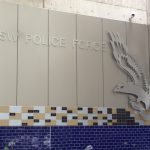Alcohol Free Zones: Targeting Vulnerable People?

Earlier this year, the City of Sydney announced a review of its alcohol free zones. These are used by Councils across the state as a way of discouraging anti-social drinking, however the number and location of the proposed new zones has left some people questioning their necessity and true purpose.
Last year, Deputy Mayor Irene Doutney argued against the expansion, writing that she had “lost track of the number of Alcohol Free Zones (AFZs) and Alcohol Prohibited Areas (APAs) that have been approved during my time on Council. The list appears to grow rapidly and I remain sceptical of the effect of these measures.”
“AFZs and APAs are a poor tool for engaging with problematic public drinking. I am on the public record as a critic of these measures because there is scant evidence that they do anything to curb drinking or crime. If anything, these measures act as a tool to move homeless and disadvantaged people on.”
The Council ran an online consultation on the expansion earlier this year, and is expected to vote on whether to approve the changes in the coming week. The new list of alcohol free zones is expansive, and will restrict the ability of people to drink in many public areas of the city.
What are Alcohol Free Zones?
In NSW, you may openly drink on any street, park or carpark unless the local council has designated that area an alcohol free zone or an alcohol prohibited area. These must be marked with conspicuous signs at the outer limits, and at suitable intervals within. The signs must state that drinking alcohol is prohibited in the zone/area, and specify the period during which the prohibition will operate.
Alcohol Free Zones may be established in streets and car parks, while Alcohol Prohibited Areas may be established in parks and any other public area like the Devonshire Street pedestrian tunnel under Central Station, or a beach.
A police officer, or a council ranger may confiscate alcohol in either the Alcohol Free Zone or Alcohol Prohibited Area if they believe you are drinking, are about to drink, or have recently been drinking. This is often established by whether you have an open bottle. A wine bottle that is half empty but has the top screwed on is still counted as open, so is a goon sack with the tap pulled out of the box.
They used to be able to fine you in an alcohol prohibited area, but that was changed in 2010 to make enforcement more consistent across parks and roads. Refusal to tip out your alcohol can result in an obstruction charge and a potential maximum penalty of $2,200.
You may also be fined $400 for drinking on a train or at a train station.
How is that discriminatory?
Prohibition of drinking in public disproportionately affects groups that can’t afford to drink inside the city’s increasingly expensive venues: young adults, low income people, and the homeless.
With the average price of a beer in a city bar about $7 a schooner, people need somewhere else to have fun and unwind. Taking away their alcohol in a park significantly reduces the amenity of that park for them.
Some believe alcohol free zones have the ulterior motive of giving police and Council rangers the power to target anyone they don’t like the look of, and getting ‘undesirable’ people out of the area by prohibiting the use of alcohol and, in the case of police, using ‘move on’ powers. Rangers and police have discretion in NSW as to whether to apply the rules, though when they do enforce them, they often insist that choice doesn’t exist.
In a quick phone conversation, the City of Sydney’s front desk said it would be unlikely that police or council rangers would enforce the prohibition on someone that was picnicking with a bottle of wine. This confirm that, most of the time, it’s probably not going to be the middle class families who are going to be asked to tip out their bottles.
More Alcohol Free Zones on the way
Every year, the list of prohibited areas grows, it’s a creeping imposition on the freedom to use public space.
Public alcohol restrictions are overwhelmingly in areas where wealthy people work, and where low income people live and play.
Most parks around the CBD, Kings Cross and Redfern have been designated alcohol prohibited zones, as well as Martin Place, sections of The Rocks and Circular Quay. Alcohol Free Zones cover pretty much all of Darlinghurst and Surry Hills as well as the main city roads, the roads around the Casino, much of Redfern and Waterloo and parts of Glebe and Newtown.
Alcohol Free Zones and Alcohol Prohibited Areas surround the Glebe and Waterloo public housing and extend through what used to be The Block in Redfern. Without being able to afford venues, this forces the drinking inside the home where partners and children are.
Police Have Other Tools
Under the Summary Offences Act, anyone intoxicated and disorderly in a public space can be issued with a move-on order, forcing them to go anywhere else for 6 hours. If they’re found to be intoxicated and disorderly in the same place or anywhere else public within those 6 hours, they can be fined up to $1650.
Under Law Enforcement (Powers And Responsibilities) Act, anyone who can be fined for the above offence, or anyone behaving in a disorderly manner or in a manner likely to cause injury to the person or another person or damage to property can be detained until they’re sober, or until police can find someone to take responsibility for them.
Anyone being violent towards another person or police, or damaging another’s property, can be charged with assault or reckless damage offences respectively.
There is a strong argument that there is no need for laws that punish people for doing nothing but sipping on a long neck.
The confiscation of alcohol creates animosity and conflict between police and those who already have it tough on the streets, and who might otherwise have a better relationship with law enforcement.






